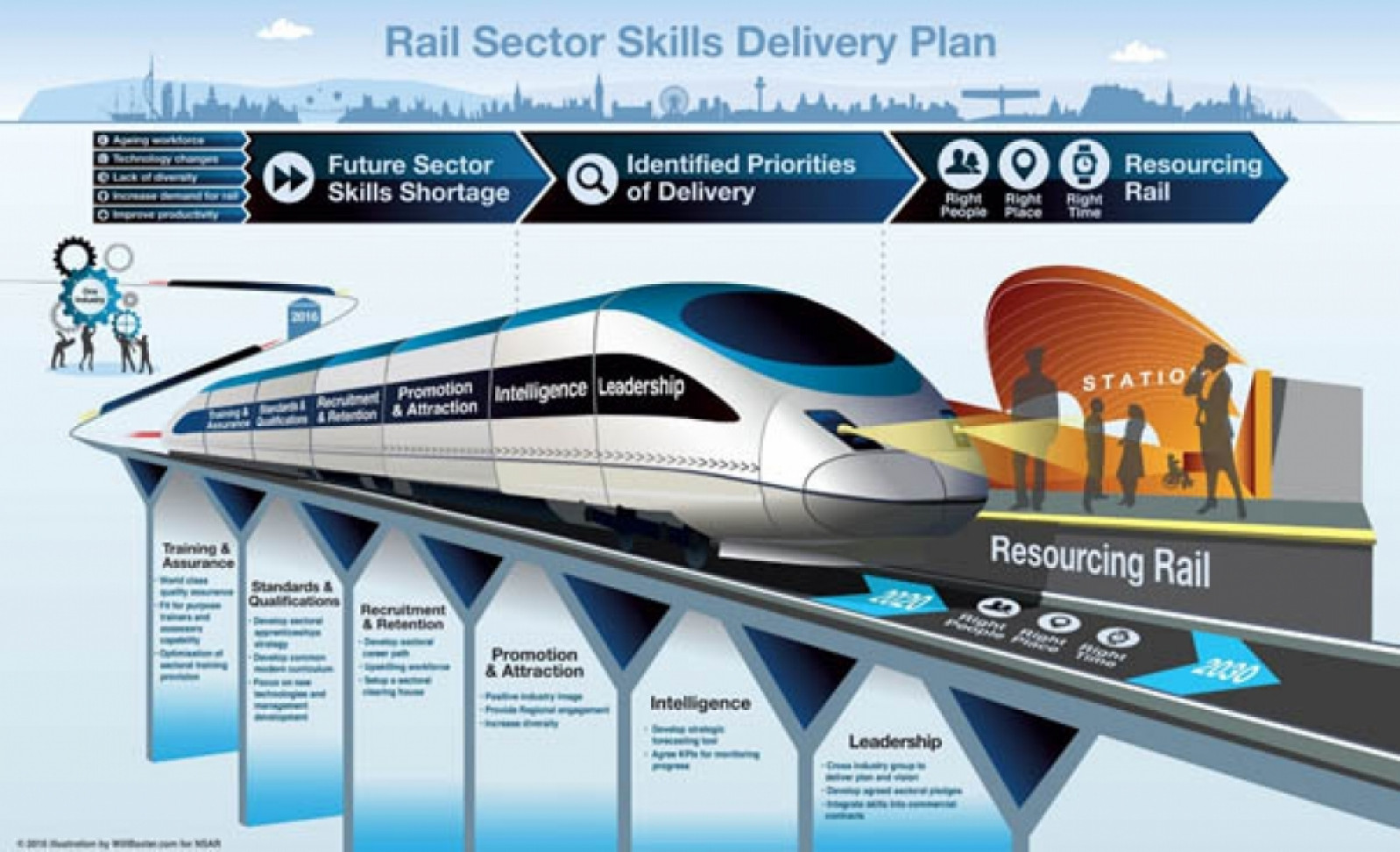The UK rail industry is rapidly growing. With record levels of investment and a host of major projects either on the horizon or happening now, there has never been a better time to consider a career in the rail sector. However, the well documented skills shortage remains a concern for the industry.
In this blog entry, Philip Delaloye, senior consultant for rail at Jonathan Lee Recruitment, discusses the issues and initiatives in place to alleviate the skills shortage.
*Source Rail Sector Skills Delivery Plan
There is an acknowledgement in the rail sector that for too long the sectorÂs image has remained stagnant: too traditional, not as technology driven as comparable sectors and thus is not attracting the volume and diversity of people the sector needs. Of course, extensive modernisation of the industry over recent years means that this perception is far from today's reality.
Now is the time to sell the rail industryÂs exciting career opportunities. This begins from education in schools through to attracting experienced people from other vertical markets to enter the rail sector.
Attracting the next generation of engineers
Initiatives such as the Rail Sector Skills Delivery Plan being delivered by The National Skills Academy aims to facilitate the ambitious rail investment plans and to improve the railwayÂs performance by attracting a new generation of people to work in rail including 20,000 apprenticeships by 2020, whilst also investing in the existing workforce. Critically, the initiative seeks to promote rail as a high-tech and dynamic industry.
Key to attracting the next generation of engineers to the sector is to change the perception of railway engineers. The stereotypical image on TV depicts individuals hefting sections of rail around a track skills training centre. What needs to be shown, for example, is the interesting, animated sequences involving CAD in design offices and EDM for site surveys, or how they could be involved with new layouts/bridges or earthworks remediation.
The vast and interesting opportunities offered by the rail industry are simply not understood by school, college or university leavers. To put this into perspective, there are only 5 rail-specific engineering degrees available in the UK compared to 44 for automotive and 48 for aerospace (UCAS). It's becoming a "Catch 22" situation for the industry as universities would be more likely to respond if there were increased interest and demand from university applicants.
Of course, for benchmark projects like HS2, future skills have had to be addressed. The National College for High Speed Rail aims to produce a generation of world class high speed rail workers which would be essential for its success. GovernmentÂs commitment to support long term, sustainable success for the industry is also demonstrated by the promised £170m investment in new Institutes of Technology. The aim of these institutes is to deliver highly technical education at under-graduate level in STEM subjects to meet the skill needs of employers across the country - both for rail and reaching other leading tech industries.
With a scarcity of skilled resources it is imperative that our sector is promoted as an overwhelmingly positive and exciting place to build a career. This begins at school, engaging with young people from all backgrounds so that they have visibility of and access to the opportunities.
While steps are being taken to address skills for the future, the image of the industry still needs improvement. There are exciting opportunities in rail industry and it is up to the rail companies, industry bodies and the government to promote the exciting career paths available.
See more at: http://www.jonlee.co.uk/blog/signalling-change-to-meet-the-rail-skills-gap-blog-74716117152#sthash.Vqd2Qy8b.dpuf











